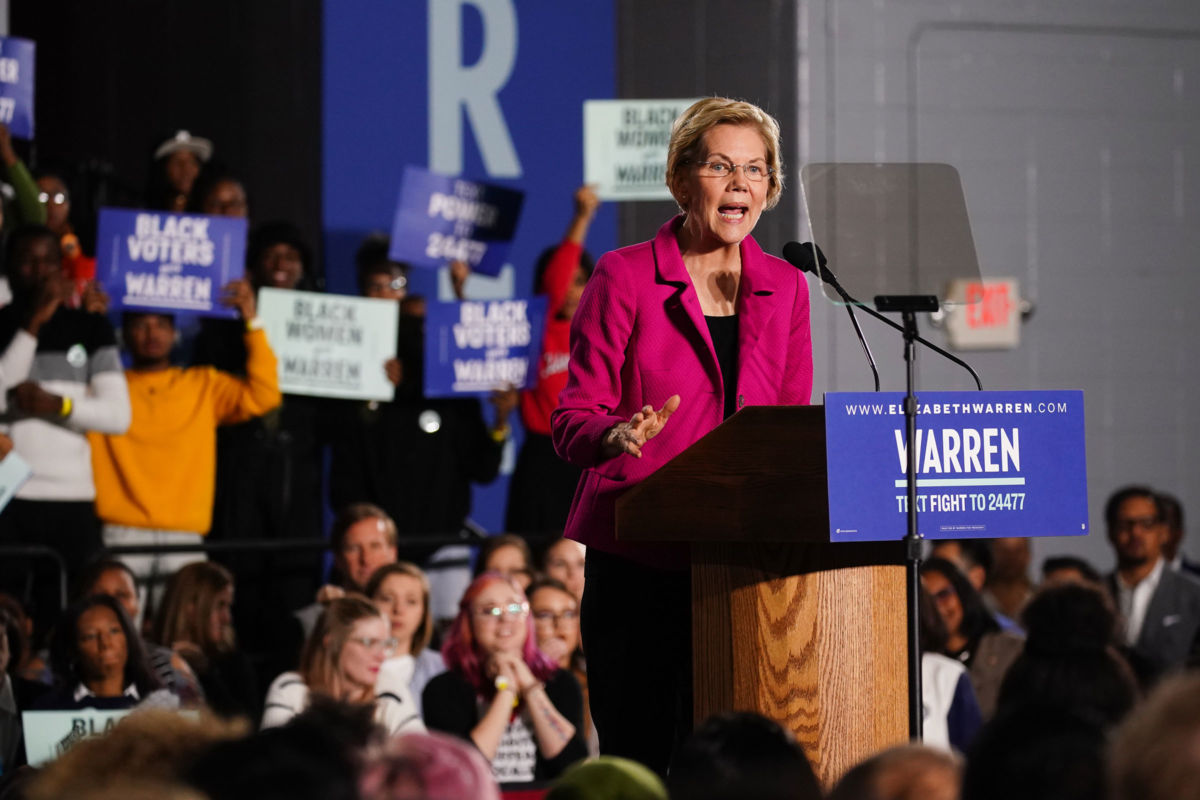Earlier this month, Sen. Elizabeth Warren put out a set of steps that she would put forward as president as part of a transition to Medicare for All. The items that got the most attention were including everyone over age 50 and under age 18 in Medicare, and providing people of all ages with the option to buy into the program. This buy-in would include large subsidies, and people with incomes of less than 200 percent of the poverty level would be able to enter the Medicare program at no cost.
These measures would be enormous steps toward Medicare for All, bringing tens of millions of people into the program, including most of those (people over age 50) with serious medical issues. It would certainly be more than halfway to a universal Medicare program.
While these measures captured most of the attention given to Warren’s transition plan, another part of the plan is probably at least as important. Warren proposed to use the government’s authority to compel the licensing of drug patents so that multiple companies can produce a patented drug.
The government can do this both because it has general authority to compel licensing of patents (with reasonable compensation) and because it has explicit authority under the 1980 Bayh-Dole Act to require licensing of any drug developed in part with government-funded research. The overwhelming majority of drugs required some amount of government-supported research in their development.
These measures are noteworthy because they can be done on the president’s own authority. While the pharmaceutical industry will surely contest a president’s use of the government’s authority to weaken their patent rights, those actions would not require congressional approval.
The other reason that these steps would be so important is that there is a huge amount of money involved. The United States is projected to spend over $6.6 trillion on prescription drugs over the next decade, more than 2.5 percent of GDP.
This is an enormous amount of money. We spend more than twice as much per person on drugs as people in other wealthy countries.
This is not an accident. The grant of a patent monopoly allows drug companies to charge as much as they want for drugs that are necessary for people’s health or even their life.
While other countries also grant patent monopolies, they limit the ability of drug companies to exploit these monopolies with negotiations or price controls. This is why prices in these countries are so much lower than in the United States.
But even these negotiated prices are far above what drug prices would be in a free market. The price of drugs in a free market, without patent monopolies or related protections, will typically be less than 10 percent of the U.S. price and in some cases, less than 1 percent.
This is because drugs are almost invariably cheap to manufacture and distribute. They are expensive because government-granted patent monopolies make them expensive.
The rationale for patent monopolies is to give companies an incentive to research and develop drugs. This process is expensive, and if newly developed drugs were sold in a free market, companies would not be able to recover these expenses.
To make up for the loss of research funding supported by patent monopolies, Warren proposes an increase in public funding for research. This would be an important move toward an increased reliance on publicly funded biomedical research.
There are enormous advantages to publicly funded research over patent monopoly-supported research. First, the government is funding the research. It can require that all results be fully public as soon as possible so that all researchers can quickly benefit from them.
By contrast, under the patent system, drug companies have an incentive to keep results secret. They have no desire to share results that could benefit competitors.
Public funding would also radically reduce the incentive to develop copycat drugs. Under the current system, drug companies will often devote substantial sums to developing drugs that are intended to duplicate the function of drugs already on the market. While there is generally an advantage to having more options to treat a specific condition, most often, research dollars would be better spent trying to develop drugs for conditions where no effective treatment currently exists.
Ending patent monopoly pricing would also take away the incentive for drug companies to conceal evidence that their drugs may not be as safe or effective as claimed. Patent monopolies give drug companies an incentive to push their drugs as widely as possible.
The opioid crisis provides a dramatic example of the dangers of this system. Opioid manufacturers would not have had the same incentive to push their drugs, concealing evidence of their addictive properties, if they were not making huge profits on them.
In short, Senator Warren’s plans on drugs are a really huge deal. How far and how quickly she will be able to get to Medicare for All will depend on what she can get through Congress. But her proposal for prescription drugs is something she would be able to do if elected president, and it would make an enormous difference in both the cost and the quality of our health care.
Join us in defending the truth before it’s too late
The future of independent journalism is uncertain, and the consequences of losing it are too grave to ignore. To ensure Truthout remains safe, strong, and free, we need to raise $17,000 by midnight tonight. Every dollar raised goes directly toward the costs of producing news you can trust.
Please give what you can — because by supporting us with a tax-deductible donation, you’re not just preserving a source of news, you’re helping to safeguard what’s left of our democracy.
